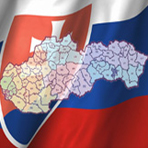National Bureau of SIRENE
The national SIRENE office was established in the Slovak Republic on 1st January 2004 and has been included in the organisational structure of the Office for International Police Co-operation of the Police Corps Presidium. In terms of the Article 69 (9) of the Act No. 171/1993 Coll. on Police Force as amended, the national SIRENE office represents a separate unit providing an exchange of supplementary information and personal data to the entries processed in the Schengen Information System.
The name SIRENE is an acronym of the English phrase expressing the main scope of activity of this centre (Supplementary Information REquest at the National Entries). Each EU country using the Schengen Information System has its own SIRENE office established for this purpose.
The national SIRENE office plays the role of a point of the first contact within international police co-operation, both for partner SIRENE offices abroad and for national authorities and individual end-users of the Schengen Information System. SIRENE offices established in member states of the common Schengen Area communicate with each other 24/7 by means of a specific e-information network in a determined form. The communication among SIRENE offices is most intensive in situations when police forces of member states, fulfilling their tasks of checking persons and objects, identify these with one of the entries in the Schengen Information System. In such cases it is necessary to obtain the maximum amount of information available from the country which has created the entry in the system in order to pursue the given matter. Depending on single cases, a SIRENE office has to be able, as a part of fulfilling its tasks, to deal with single requests of the bodies involved, or to forward them to competent authorities.
Main areas of tasks fulfilled by the national SIRENE office:
-
searching for persons and objects on the basis of entry in the Schengen Information System (entering, updating, deleting an entry);
-
exchanging supplementary information and personal data to the entries (photos, biometric data, decisions of relevant bodies, etc.);
-
executing the European arrest warrants (providing hand-over and take-over of person);
-
international police co-operation in terms of the provisions of the Schengen Convention (Articles 39, 40, 41, 46);
-
protection and quality of personal data processed in the Schengen Information System;
-
rights of data subjects exercised in terms of the Articles 109 and 110 of the Schengen Convention;
-
providing information in view of the Act No. 211/2000 Coll. on Free Access to Information;
-
participation in meeting of working groups of the EU bodies;
-
education in the area of Schengen police co-operation and the Schengen Information System;
-
operation of the national part of the Schengen Information System;
-
implementing the development of the Schengen Information System in national conditions.













